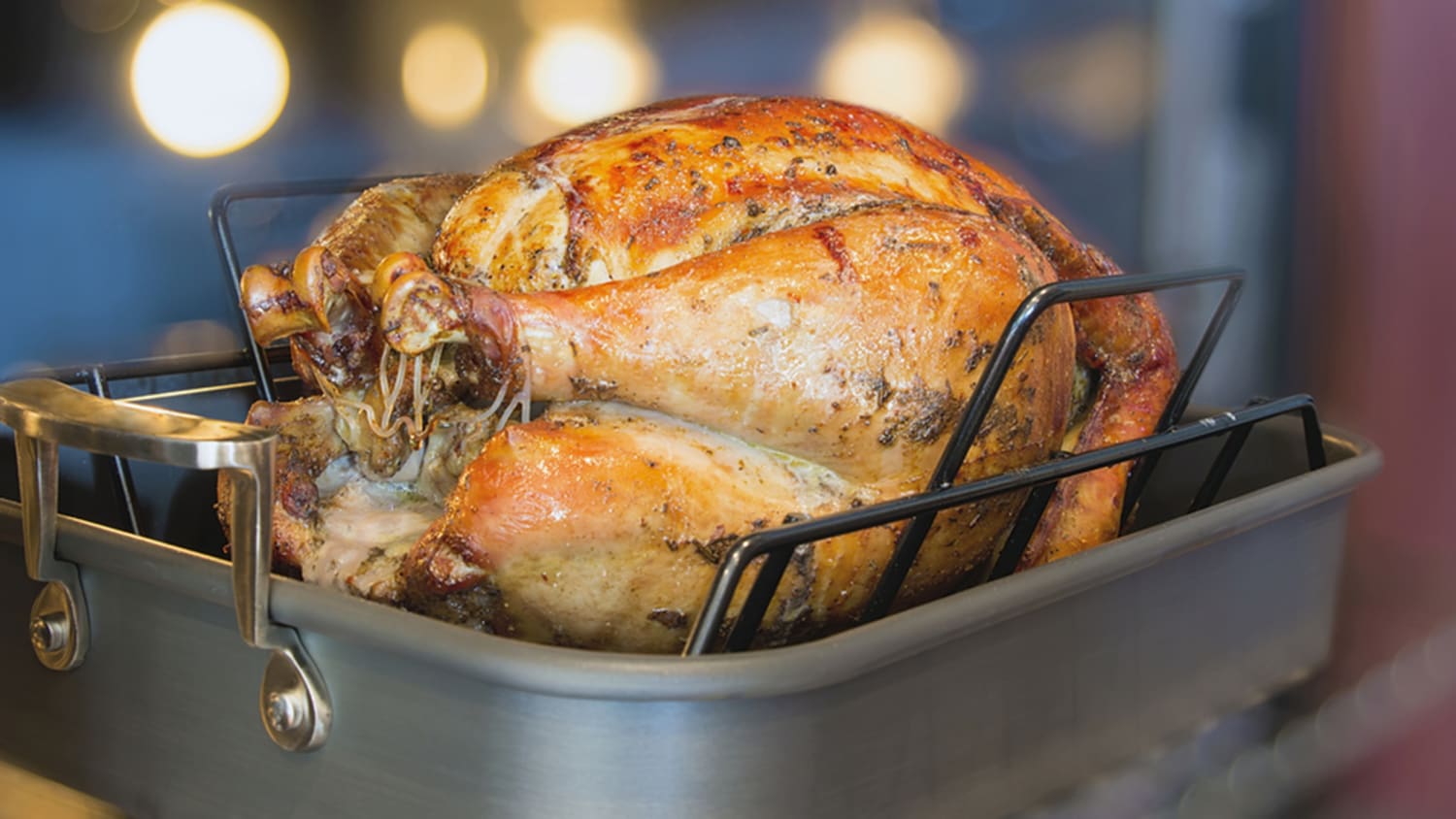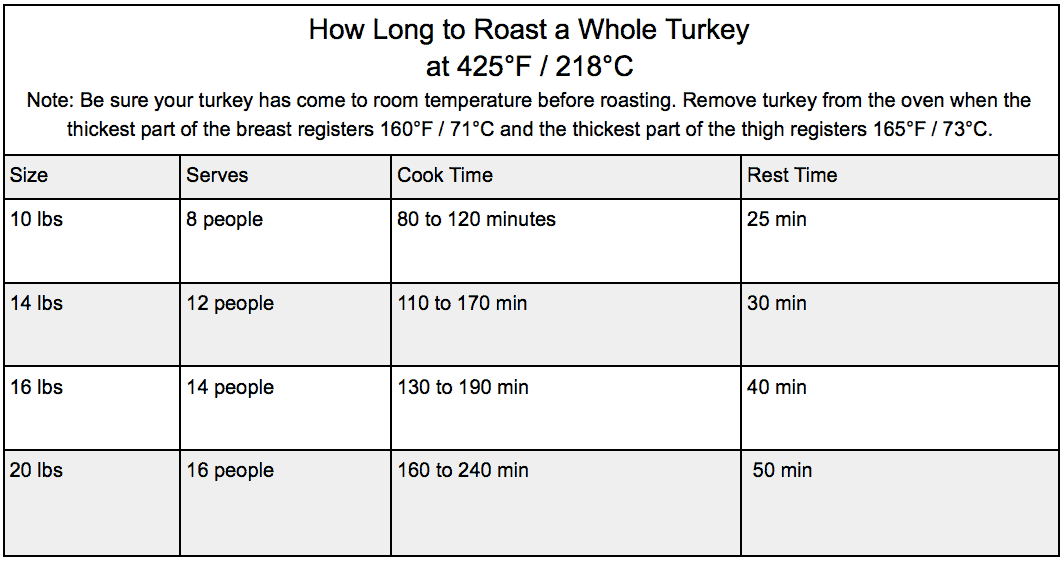Brining a turkey can help to ensure tender, juicy meat that is full of flavor. But have you ever wondered what is better – unbrined, dry brined, or salt water brined turkey? We did a side-by-side comparison. Read on for the results.
For years, I used a salt water brine to prepare my turkey for roasting. But lately it’s becoming increasingly popular for chefs and recipe developers to recommend a dry brine in which you rub the meat with salt and let it rest, allowing the salt to infuse the meat. A lot of the bigger food-centric websites (like Serious Eats and New York Times Cooking Section) recommend dry brining.
I set out to test three methods of roasting a turkey in my home kitchen. I ordered three 14-lb organic turkeys and roasted them 1) without a brine (using my Simple Roasted Turkey method), 2) with a dry brine, and 3) with a salt water brine. My recipes for dry brine and salt water brine can be found at the bottom of the post.
I rounded up some taste testers and did side-by-side comparison of the three turkeys. Results below!
Brining a turkey before roasting is a technique many home cooks swear by for getting a moist, flavorful bird on Thanksgiving. But is it really necessary? Should you make the effort to brine your turkey this year? Here’s a look at the pros and cons of brining so you can decide if it’s right for your Thanksgiving feast.
What is Brining and Why Do It?
Brining involves soaking the raw turkey in a saltwater solution before cooking. Typically the brine contains water, salt, sugar or honey, and aromatic ingredients like citrus, herbs, and spices.
The turkey soaks in the brine anywhere from 4 to 24 hours. During this time, the salt in the brine seasons the meat and helps it retain moisture. The sugar adds flavor and also aids in moisture retention. The aromatics infuse the turkey with extra flavor.
Proponents of brining claim it:
- Makes the turkey super moist and juicy, especially the breast meat
- Infuses lots of flavor into the meat
- Helps prevent the turkey from drying out while cooking
- Results in a tender, seasoned turkey even without much added seasoning
So if perfectly moist and flavorful turkey sounds good to you, brining may be the trick to achieve that.
Reasons You May Want to Skip the Brining
However, brining isn’t universally loved. Here are some of the downsides that lead people to skip brining their Thanksgiving turkey
-
It takes time and planning. You need to make the brine, which requires simmering and cooling it. Then the turkey needs to soak for hours. This can be difficult to fit into a busy pre-Thanksgiving schedule.
-
Leftover turkey can be too salty. While the brining makes the freshly cooked turkey juicy, leftovers that are re-heated after brining may taste overly salty.
-
It requires a lot of space. To brine a large turkey, you need a very big container (like a cooler) to submerge the bird completely. Plus it takes up room in the fridge.
-
You can over-brine. Too much time in the brine makes the turkey far too salty. It’s easy to accidentally leave it soaking too long.
-
Wet turkeys are messy. Getting the dripping wet bird in and out of the brine and dealing with the sloshing brine liquid can get messy in your kitchen.
-
It can inhibit browning. The moist surface from brining may prevent the turkey skin from crisping up.
-
You need the right turkey. Pre-brined, enhanced, or kosher turkeys already have added salt/sodium so brining can make them overly salty. Make sure to buy an un-brined turkey.
For many home cooks, the hassle and mess of brining outweighs the benefits. If you don’t want to deal with brining but still want a juicy turkey, there are alternatives.
Alternatives to Brining for a Juicy Turkey
Here are some other options for getting a juicy, well-seasoned turkey without brining:
-
Dry brine. Rubbing the turkey all over with salt and letting it rest uncovered in the fridge achieves a similar effect to wet brining. Less mess and planning required!
-
Flavor injection. Using an injection kit to inject the turkey with a seasoned liquid solution does a similar job as brining.
-
Herb butter under the skin. Rubbing compound butter with lots of aromatic herbs under the skin adds moisture and flavor.
-
Aromatic ingredients in the cavity. Stuffing the cavity with citrus, onions, herbs, garlic etc adds moisture and imparts flavor from the inside out.
-
Basting. Brushing the turkey with broth, wine, or melted butter as it roasts keeps the meat from drying out.
-
Cook it correctly. Monitoring the temperature and not overcooking prevents a dry bird. Letting it rest after roasting allows juices to redistribute.
-
Gravy. A well-made gravy, simmered with the flavorful pan drippings, provides moisture when serving.
Whether or not you should brine your turkey comes down to your preferences and situation. If you love hosting and have the time to tackle the project, brining may be for you. It undoubtedly results in a super moist, well-seasoned bird with fantastic flavor.
However, if time is short, space is tight, and you want to skip the mess, there are plenty of other routes to take for a juicy, delicious Thanksgiving turkey. Alternatives like dry brining, flavor injections, herb butter, and correct roasting techniques will still give you a tasty bird without the headaches of wet brining.
Take a close look at the pros, cons, and alternatives before deciding what’s right for your Thanksgiving this year!
Summary of Key Points:
-
Brining means soaking the raw turkey in a seasoned saltwater solution before cooking to increase moisture and flavor.
-
Benefits include a juicy, well-seasoned turkey, especially moist breast meat.
-
Downsides are time required, mess, leftovers that may be too salty, and improper brining technique.
-
Alternatives to brining are dry brining, flavor injection, herb butter under skin, aromatics in cavity, basting while roasting, proper roasting, and gravy.
-
Whether you should brine or not depends on your time, space, willingness to deal with the mess, and personal preference. Both brined and unbrined turkeys can be delicious.

Sugar and other Sweeteners in Brine
Adding sugar to a brine can add a subtle sweetness and help with browning of the skin as the sugars caramelize. A roast turkey will get nicely browned even without the added sugar, but you can add brown sugar or maple syrup to any brine recipe. (Add about ¾ as much sugar as salt.)
How Long to Roast a Turkey at 425°F
At 425°F / 218°C, estimate 8 to 12 minutes per pound of turkey. Keep in mind that this will vary based on the initial temperature of the turkey when it goes into the oven (try to bring it to room temperature before you start) and the variations in size / shape of the turkey. Use an instant read thermometer to start checking for doneness at the low end of the estimated time.

How to make a Turkey Brine | Turkey Brine | Thanksgiving
FAQ
Should I brine my Thanksgiving turkey?
Brining your Thanksgiving turkey will add moisture, flavor, and it will almost guarantee a very succulent, tender result. It doesn’t matter what roasting method you use to cook the turkey; brining it first is the key to your success.
Do I need to brine a butterball turkey?
Iirc butterball turkeys are pre brined, so if you are using an equilibrium brine it will have no impact at all. If you’re using a stronger brine it will just make everything too salty.
How long to brine a 20 lb turkey?
- 12–14-lb. turkey: 16–18 hours.
- 14–16-lb. turkey: 18–20 hours.
- 16–18-lb. turkey: 20–22 hours.
- 18–20-lb. turkey: 22–24 hours.
Does brining a turkey change the flavor?
Enhanced Flavor: Brining infuses the meat with a savory, seasoned flavor. The salt and additional spices or herbs used in the brine penetrate the meat, resulting in a more flavorful dish that requires less additional seasoning during cooking.
